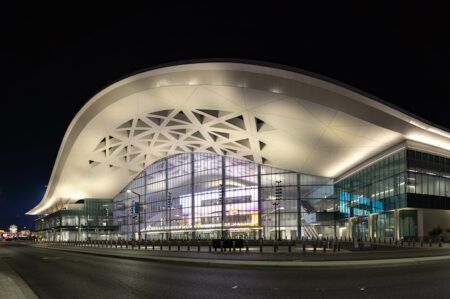The International Association of Public Transport (UITP) is highlighting some of the multimodal, connected and shared mobility services that will be on display at its sixth edition of the International Conference and Exhibition on Intelligent Urban Transport Systems.
Urban mobility is currently made up of a variety of services complementing public transport, including well established features, such as bike sharing and car sharing schemes, and emerging players, such as ride hailing and ridesharing apps, with Mobility-as-a-Service (MaaS) platforms blending the whole suite of mobility offers into one package.
In the future, autonomous vehicles will add yet another option to the array of mobility services available to customers. The providers of these technologies and solutions will be among the around 250 exhibitors from more than 30 countries present at the IT-TRANS event, which will be taking place at the Karlsruhe Trade Fair Center in Germany from March 6-8, 2018.
The IT-TRANS exhibitors will include:
• Multimodal and flexible solutions by Moovel Group, a wholly owned subsidiary of Daimler, which is creating an operating system for urban mobility that offers access to several mobility services; digital, connected and on-demand. At IT-Trans, the company will present its app, transit and on-demand products. Moovel On-demand (bottom) is a new mobility service using advanced algorithms, with intelligent journey management and routes being continually recalculated and updated using real-time data on traffic.
• Swiss company Axon Vibe’s MaaS platform (top), which is a location-based contextual system that detects and predicts human behavior. Public transport operators use this technology to orchestrate their customers’ door-to-door, multimodal and on-demand mobility. The contextual platform delivers: Smart Travel Assistance, Seamless Ticketing, and Ancillary Revenue analysis.
• German software developer PTV’s MaaS Modeller tool (above), which provides pre-launch modelling of new transport options as a key to successfully implementing MaaS business models. The software enables fleet operators to determine how many vehicles they should put on the road, including expected maintenance costs, and allows users to take into account specific requirements that can be modeled and calculated based on a city’s traffic data and travel demand to make the best use of each business model.
• Israeli company Optibus (above), which provides a dynamic real-time platform that enables optimal use of resources for public transportation and fleet operators using proprietary algorithms and cloud-based technology to factor in passenger demand and unexpected events, making real-time changes to prevent any negative impact. Optibus will be demonstrating: OnSchedule – optimizing the use of vehicles and drivers; Charge – scheduling electric bus charging; and OnDemand– public transportation as a service.




